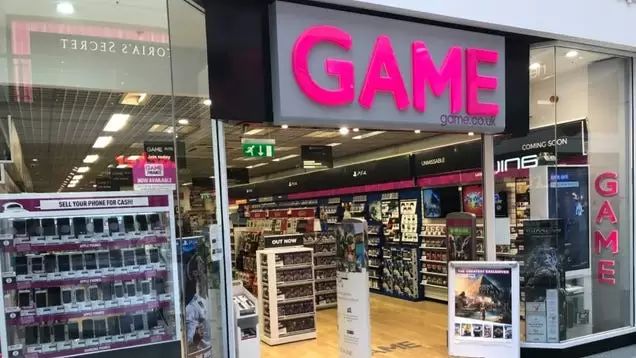UK's Biggest Gaming Store Rumored To End Trade Ins
Share- Nishadil
- January 16, 2024
- 0 Comments
- 4 minutes read
- 127 Views

UK's Biggest Gaming Store Rumored To End Trade Ins
Staff from the UK’s biggest video game retailer, GAME, have told Eurogamer the retailer is to stop accepting trade ins. Which, if true, is the end of an era.Read more...
Staff from the UK’s biggest video game retailer, GAME, the retailer is to stop accepting trade ins. Which, if true, is the end of an era. GAME is to the UK as GameStop is to the U.S. As in, the remaining gaming retailer after eating all the others. It’s been around in some form since 1992, and was bought by Electronics Boutique in 1999, whereupon all the EBs changed their names to GAME too.
But like GameStop, and pretty much every other brick n mortar retailer of physical media, has spent the last decade or so clinging on to life. In 2012, GAME after its financial situation was so dire that major publishers were refusing to send it stock. Since then, various new owners have tried everything U.S.
readers will be familiar with, the remaining stores now filled with plushies, Funko Pops, board games, Pokémon cards, and anything else that captures the gaming adjacent zeitgeist. But through it all, GAME has always operated around trade ins. Until now, it seems. The decision feels very much like part of a worldwide trend, as physical media struggles to find a reason to be in a primarily digital space.
that it would no longer stock DVDs and Blu Rays, and obviously physical stores are suffering closures and redundancies everywhere. But, as a Brit, trade ins at GAME are just part of the furniture of reality. They’ve just always been there! I spent my Saturdays and school holidays working in GAME stores for years of my teenage life, having hung out inside of them unpaid for years before.
(To date this, I used to be in charge of the VHS section.) I now take my own kid (who has never seen a VHS, nor even held a DVD) to our nearest GAME for multiple birthday parties in the attached to it. I’ve been the person arriving with the carrier bag of games, and the person who’s refused those games because of the scratches all over the discs.
Trade ins have always been a two edged sword. In their favor, , because they allow a person to recoup value from their own property without paying the publisher again for some reason, and also . Against them, it’s such a rip off for customers, who are paying so much for a product the store already sold at full price at least once, at only a marginal discount.
While my experience of it was in the 1990s, I’m very aware how much we paid for a relatively recently released $60 game (about $25) and how much we sold it for (about $55). Those mark ups would get even more pronounced with older games, where I’d be required to offer about $3, and then stick a label on it for $15.
(But in pounds, obviously.) And yeah, that’s how free markets operate, but it was amazing amounts of free money for the stores. Anyway, this old man’s rambling aside, it’s quite the thing that the pre owned market might be proving so lacking in value that GAME would abandon something that’s been part of the chain’s DNA for 30 years.
We’ve done our best to contact GAME to find out if the rumors are true, but they’re now owned by the (née Sports Direct), which owns a worrying proportion of the shops on every British high street, and press contacts appear few and far between. If this is indicative of a trend, it seems likely U.S.
chains will follow suit. It might be time to clear out those shelves for some store credit, before it’s too late..
Disclaimer: This article was generated in part using artificial intelligence and may contain errors or omissions. The content is provided for informational purposes only and does not constitute professional advice. We makes no representations or warranties regarding its accuracy, completeness, or reliability. Readers are advised to verify the information independently before relying on







